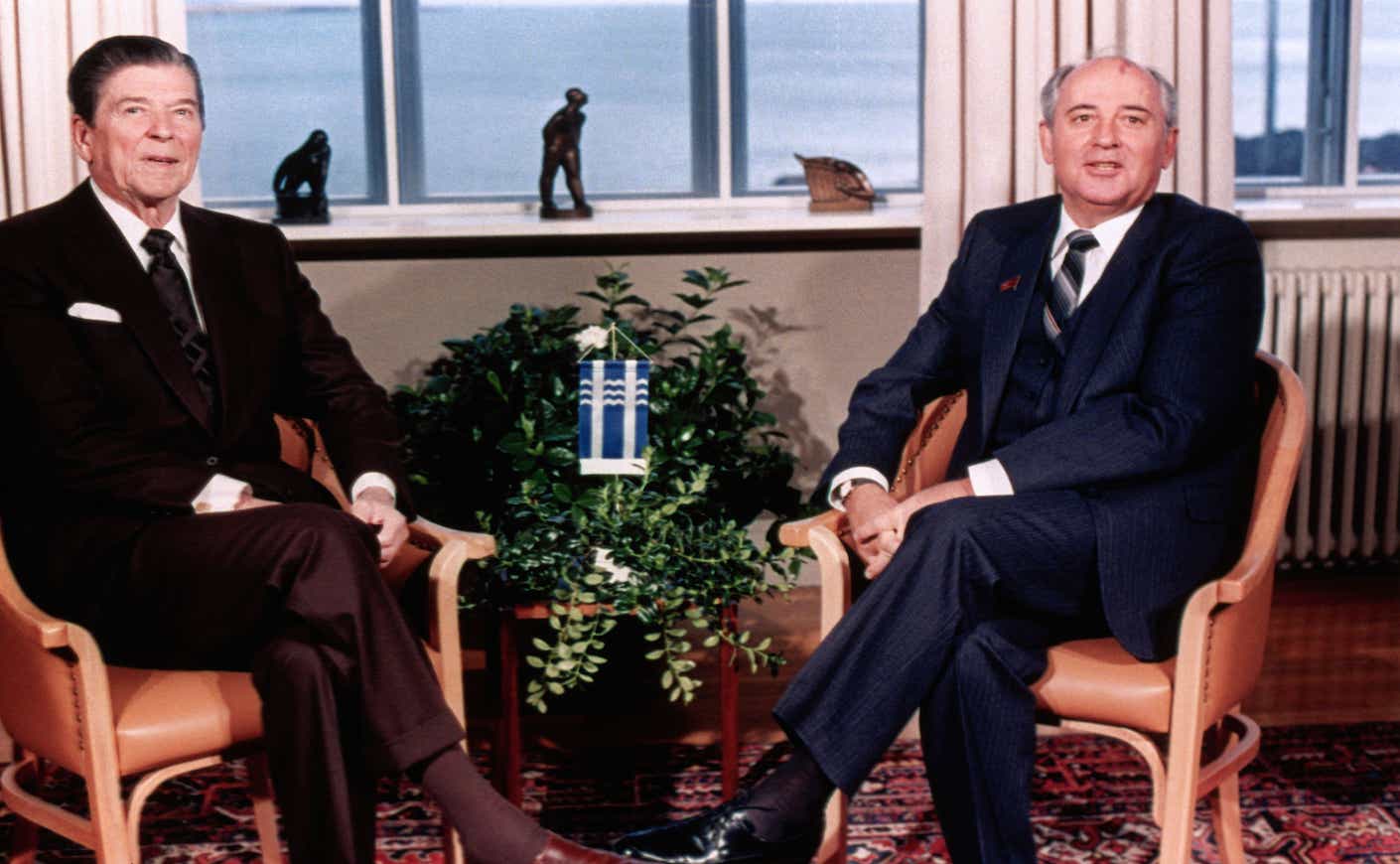It was mid-afternoon on Sunday, October 12, 1986, when President Ronald Reagan caught the Russian leader totally by surprise. He and Mikhail Gorbachev sat in a reputedly-haunted house in the middle of nowhere, on the outskirts of Reykjavik, Iceland. With rain pounding on the windows, there they sat for the final session of their two-day, exhausting superpower summit, where they spent 10-and-a-half hours talking primarily about the bomb.
“It would be fine with me if we eliminated all nuclear weapons,” popped into Reagan’s mind and out his mouth. The Russian leader, after such a jolt, said from across the small conference table: “We can do that. We can eliminate them.”
Of course that never happened, though both Reagan and Gorbachev clung to that notion. During a recent television interview, Gorbachev — now old, ailing, and alone — spoke exclusively of the horror of nuclear weapons and how our current crisis would be so different had he and Reagan eliminated them.
Indeed so.
Imagine today’s crisis in Ukraine without any nuclear weapons in the world. Putin invades Ukraine, meets unexpected resistance, finds his military isn’t so great, brutalizes Ukraine further, and the West strongly unifies against Russia. In short, the state of play today.
Except, today, solely because of nuclear weapons, we dare not get into a shooting match with Russian troops. We dare not simply wipe out the long convoy on the road to Kyiv, there like sitting ducks. We dare not establish a no-fly zone over Ukraine. We dare not give Ukraine combat aircraft, even laundered through Poland, that can effectively eliminate Russian tanks and planes.
Why not? The Russian military has shown how inept it is. Surely, no match for American forces, let alone those of a united and determined NATO.
Yet, Russia does have nuclear weapons. It can cause unimaginable damage to Western Europe, even to the U.S., with these weapons. It needs only the nuclear button and the threat of deploying the bomb — which Putin has inferred several times — to deter us from a relatively straightforward way to defeat him and to save Ukraine.
So, Americans who want to do everything possible to help Ukraine must refrain from going so far as to provoke a nuclear response. President Biden, handling the crisis masterfully in my mind, wants to push the U.S. response, and NATO’s, right up to that line but surely not beyond it.
As imaginary as it was, Reagan and Gorbachev were on to something important when pushing for a world without nuclear weapons. The crisis in Ukraine would have been over by now, thousands of Ukrainian lives saved, Putin summarily humiliated and perhaps shoved out of office, had they succeeded in Reykjavik these 36 years ago.
Ken Adelman, a former U.S. ambassador to the UN and Arms Control Director under President Reagan, wrote Reagan at Reykjavik, soon to be turned into a limited TV series produced by Youtchi Von Lintel and starring Michael Douglas playing Reagan.









